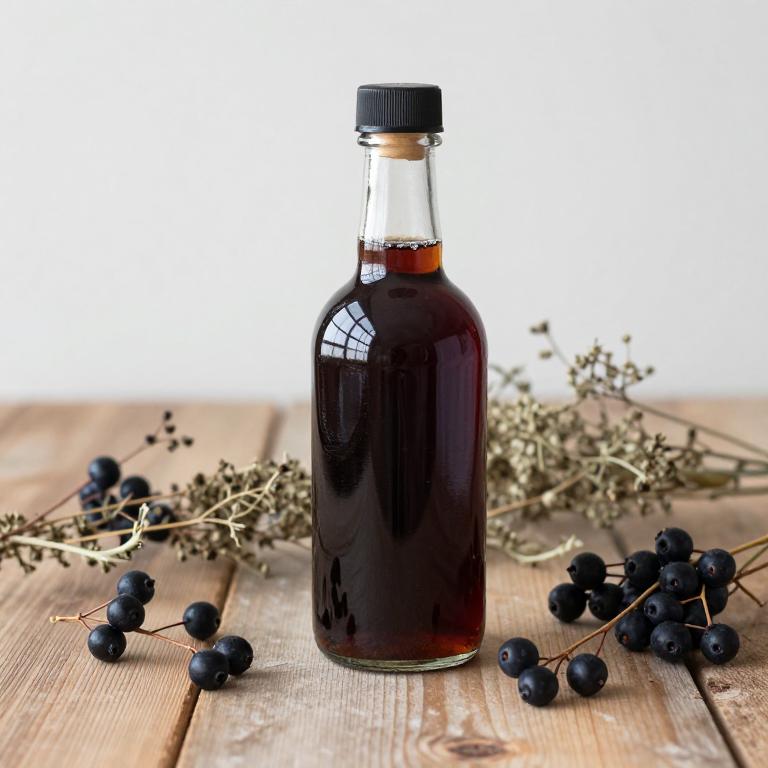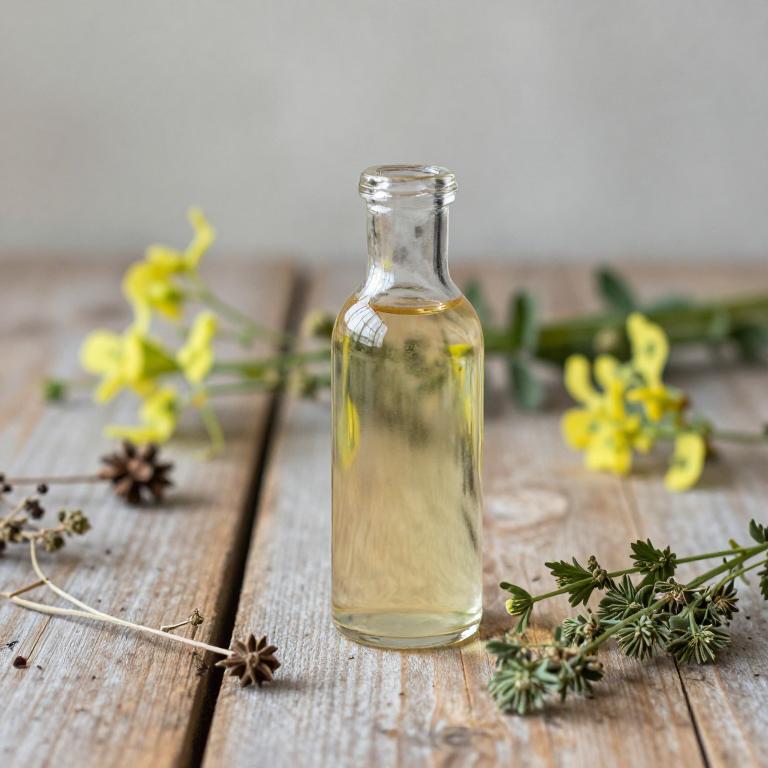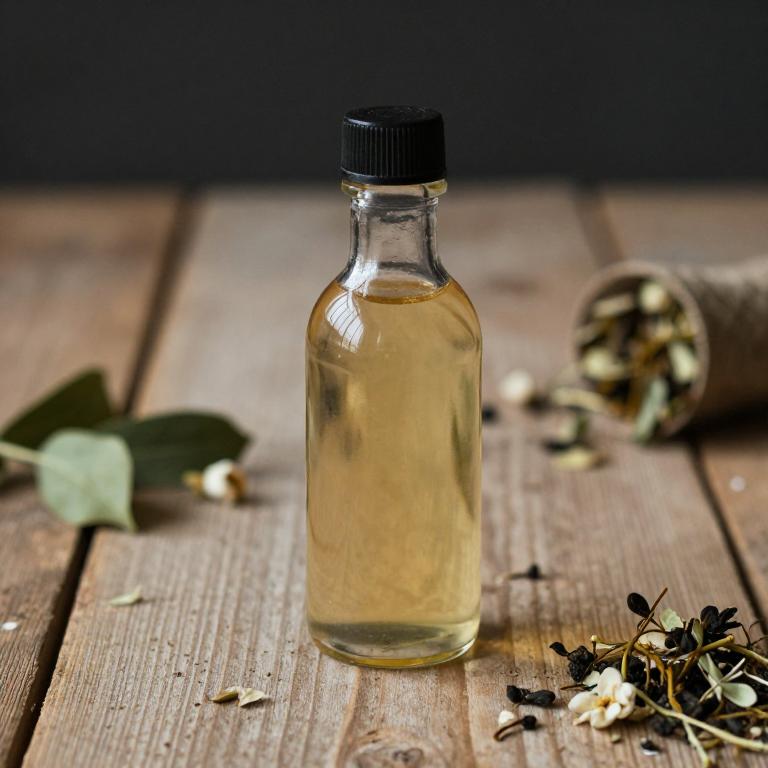10 Best Herbal Syrups For Flu

Herbal syrups for flu are traditional remedies made from a blend of natural ingredients such as echinacea, elderberry, ginger, and honey, which are believed to support the immune system and alleviate flu symptoms.
These syrups are often used as complementary therapy to help reduce fever, ease sore throat, and relieve coughing associated with influenza. They are typically available in convenient liquid form, making them easy to consume, especially for children and elderly individuals. Many herbal syrups are free from synthetic chemicals, appealing to those seeking natural alternatives to conventional medications.
However, it is important to consult a healthcare provider before use, particularly for individuals with allergies or those taking other medications.
Table of Contents
- 1. Echinacea (Echinacea purpurea)
- 2. Ginger (Zingiber officinale)
- 3. Thyme (Thymus vulgaris)
- 4. Peppermint (Mentha piperita)
- 5. Licorice (Glycyrrhiza glabra)
- 6. Black elderberry (Sambucus nigra)
- 7. Parsley (Petroselinum crispum)
- 8. Rosemary (Rosmarinus officinalis)
- 9. Fennel (Foeniculum vulgare)
- 10. Camellia (Camellia sinensis)
1. Echinacea (Echinacea purpurea)

Echinacea purpurea, commonly known as purple coneflower, is a popular herbal remedy often used to support the immune system and alleviate symptoms of the flu.
Herbal syrups made from Echinacea purpurea are typically prepared using the root or the aerial parts of the plant and are available in various forms, including tinctures and extracts. These syrups are believed to have anti-inflammatory and antiviral properties that may help reduce the duration and severity of flu symptoms. Many people use Echinacea syrups as a natural alternative or complement to conventional flu treatments, though their effectiveness can vary.
It is important to consult with a healthcare provider before using Echinacea, especially for individuals with allergies or chronic health conditions.
2. Ginger (Zingiber officinale)

Zingiber officinale, commonly known as ginger, has been traditionally used for its medicinal properties, including its ability to alleviate flu symptoms.
Ginger herbal syrups are made by extracting the active compounds from fresh or dried ginger root, resulting in a potent and aromatic remedy. These syrups are often used to relieve nausea, reduce fever, and ease congestion associated with the flu. Their warming properties can help soothe sore throats and promote sweating, which may aid in reducing fever.
Due to their natural composition and mild side effects, ginger syrups are a popular choice for those seeking a holistic approach to flu relief.
3. Thyme (Thymus vulgaris)

Thymus vulgaris, also known as thyme, is a popular herbal remedy commonly used in the form of syrup to support immune health and alleviate symptoms of the flu.
The syrup is typically made by extracting the essential oils and active compounds from the fresh or dried leaves and flowers of the thyme plant. Thyme contains powerful antioxidants and antiseptic properties, which may help reduce inflammation and fight off viral infections. When used as a herbal syrup, it is often taken orally to soothe coughs, clear congestion, and boost the body's natural defenses against the flu.
However, it is important to consult with a healthcare professional before using thyme syrup, especially for children, pregnant women, or individuals with existing medical conditions.
4. Peppermint (Mentha piperita)

Mentha piperita, commonly known as peppermint, is often used in herbal syrups to alleviate symptoms of the flu due to its soothing and decongestant properties.
These syrups typically combine peppermint oil with other herbal ingredients like eucalyptus, thyme, and ginger to create a synergistic effect that helps relieve coughing, congestion, and throat irritation. The menthol in peppermint acts as a mild stimulant, promoting easier breathing and reducing the feeling of nasal blockage. Herbal syrups made with mentha piperita are particularly favored for their natural composition, making them a safer alternative for children and adults alike.
When used as part of a holistic approach to flu treatment, these syrups can provide comfort and support the body’s natural recovery process.
5. Licorice (Glycyrrhiza glabra)

Glycyrrhiza glabra, commonly known as licorice root, has been traditionally used in herbal medicine for its soothing and anti-inflammatory properties.
Licorice root syrup is often utilized to alleviate symptoms of the flu, such as coughing, sore throat, and respiratory irritation due to its expectorant and demulcent effects. The active compound, glycyrrhizin, helps reduce inflammation in the respiratory tract and may enhance the body's immune response. However, excessive consumption of licorice syrup can lead to side effects like hypertension and electrolyte imbalance, so it should be used under medical guidance.
Despite these precautions, it remains a popular complementary remedy for flu relief in many traditional health systems.
6. Black elderberry (Sambucus nigra)

Sambucus nigra, commonly known as the European elderberry, has been traditionally used in herbal medicine for its potential immune-boosting properties.
Elderberry syrup, made from the berries of the Sambucus nigra plant, is often used to alleviate symptoms of the flu due to its high antioxidant and vitamin C content. Studies suggest that elderberry may help reduce the duration and severity of flu symptoms by inhibiting viral replication. It is typically prepared by simmering the berries with sugar and water, resulting in a thick, dark syrup.
While generally safe when consumed in appropriate doses, it is important to consult a healthcare provider before using elderberry syrup, especially for individuals with diabetes or those taking certain medications.
7. Parsley (Petroselinum crispum)

Petroselinum crispum, commonly known as parsley, has been traditionally used in herbal medicine for its potential benefits in supporting respiratory health.
Herbal syrups made from parsley are often formulated to alleviate symptoms of the flu, such as congestion, coughing, and sore throat, due to the plant’s high concentration of antioxidants and anti-inflammatory compounds. These syrups may also help boost the immune system, aiding the body in fighting off viral infections more effectively. The fresh, peppery flavor of parsley makes it a pleasant addition to herbal remedies, encouraging regular use.
While not a substitute for conventional medical treatment, parsley-based syrups can be a natural complement to flu care when used under the guidance of a healthcare professional.
8. Rosemary (Rosmarinus officinalis)

Rosmarinus officinalis, commonly known as rosemary, is a fragrant herb that has been traditionally used for its medicinal properties.
Rosemary herbal syrups are often formulated to support respiratory health and alleviate symptoms of the flu, such as coughing and congestion. These syrups typically contain rosemary extract, which is rich in antioxidants and anti-inflammatory compounds that may help reduce inflammation in the respiratory tract. The soothing aroma of rosemary can also provide a calming effect, making it a popular choice for natural remedies.
However, it is important to consult with a healthcare professional before using rosemary syrup, especially for children or individuals with allergies or existing medical conditions.
9. Fennel (Foeniculum vulgare)

Foeniculum vulgare, commonly known as fennel, has been traditionally used in herbal medicine for its potential benefits in alleviating flu symptoms.
Fennel herbal syrups are often prepared using the seeds of the plant, which are rich in essential oils containing compounds like anethole and limonene. These compounds are believed to have expectorant, antispasmodic, and mild antiviral properties that may help ease coughing, reduce inflammation, and support respiratory health. When used as a syrup, fennel can be a soothing remedy for sore throats and congestion associated with the flu.
However, it is important to consult a healthcare provider before use, especially for children or individuals with known allergies or medical conditions.
10. Camellia (Camellia sinensis)

Camellia sinensis, the plant from which green and black teas are derived, is the source of various herbal syrups used to support flu recovery.
These syrups often contain concentrated extracts of Camellia sinensis leaves, rich in antioxidants and bioactive compounds that may help reduce inflammation and boost the immune system. Some formulations combine Camellia sinensis with other herbs like echinacea or licorice to enhance their therapeutic effects. When taken as a syrup, it can provide a soothing effect on the throat and may help alleviate symptoms such as coughing and soreness.
However, it is important to consult a healthcare professional before using these syrups, especially for children or individuals with pre-existing health conditions.